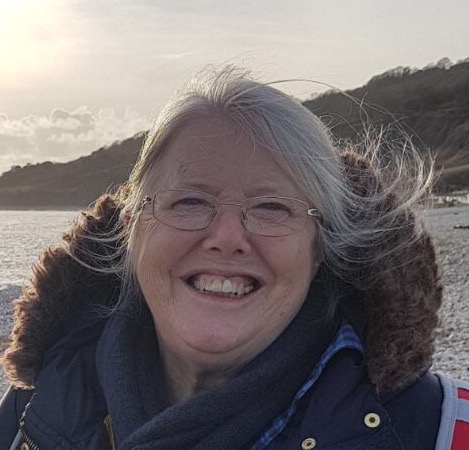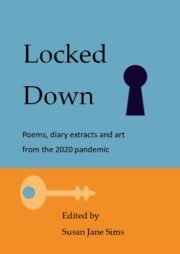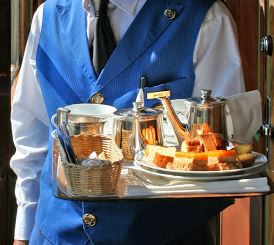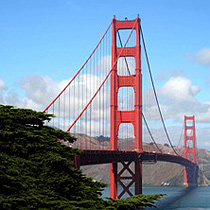• Archive of all Poetry Space showcases
Guest editor: Morag Kiziewicz

Morag Kiziewicz has wanted to be a poet since she was given a Faber book of poems as a child. Her poems have been published in anthologies and journals.
She writes a column for Tears in the Fence and is currently working with Rosie Jackson on a memoir. A member of Wells Fountain Poets, Bath Cafe Poets, Frome Stanza and David Caddy’s workshop groups, she is still aiming to write a really good poem.
Thank you to Sue Sims for giving me the opportunity to select poems for the Poetry Space Summer Showcase. Thank you to all the poets who submitted their poems. Submitting poems is a courageous thing to do in the first place, and something I struggle with myself. To be given the gift of reading these poets work is a privilege and to cut my long list down to ten poems was a challenge. I hope you enjoy my selection.

We Were the Music Makers
Not all the lads in Sally Army bands went off
As Morris men or soldier boys. No.
Some made their name & fell in love with jazz:
Derek with his cornet & Roddy
With his brazen horn blaring out
Like the Last Trump, fit to wake
The drowsy Whitsun sleepers in their Sunday best.
But, for all those jazzy boys could do,
Albert & Arthur, Tommy & Jimmy, Jack & I
Could make no music with our fingers.
We were just the football boys
Following the melodies mile after mile:
From Marsden to Meltham, Mottram to Mossley
And over the glowering Saddleworth Moors.
Oh, how we loved the beat, the beat,
The syncopated heat & swing of it
Though we could no more strike up a tune
Than fly off Windgate Edge. Rather, our wind & brass
Were the frantic pant of lungs,
The haul & puff of breath; our drumbeat
The thud of muddy boot on leather ball.
My feet stayed firmly on the ground,
Stuck closely to my roots.
Instead it was the magic in my boots
That took me over Howden Moor to Sheffield—
Where every day was Wednesday
And we made music with our feet for crowds
All chanting, cheering, clapping in the Kop.
Lizzie Ballagher
Wolf Moon,
you draw close as if you are hungry to see
the effect you have on us
and it feels as if you care
or would comfort us for this cold.
You shine on our streets,
filling, more and more, with homeless souls,
shaming a society structured to take too little heed
to use and serve us all.
You open the door of our year on to this. Time and space seem pressing,
as if it is time to fan the flame of life, awakening the spirit of justice over all.
Our system has saved a man from pneumonia but put him back on the street,
marks of the hospital tubes fresh on his arms still.
Wolf Moon, clouds pass between us now.
Your reflection flows from you
and merges again and again.
Wolf Moon, what do you say?
M.Anne Alexander
It was my son who noticed how close the moon was that night. He had been distressed by the plight of the homeless, and how hard he had found it to help. So I imagined the moon drawing close to see and the moon reflecting on this.
George
George sits on a wooden chair.
The dog half sleeps at his feet.
People pass with trolleys,
eyes fixed on supper,
eyes green brown,rainbow,
crystallised on some dream.
George’s eyes are round,
blue as space,
hard as stone,
opaque as a cloud.
Lola looks keenly,
licks with greeting
and the story starts.
The Belfast accent opens the page,
intro over, narrative flows,
Ballyhackey, Newtownards,
blind centre moved away,
marriage over, life dissolving,
George sits on a wooden chair,
holds a talking sat nav,
long way from Belfast.
Judy Dinnen
The Workhouse Bell at Bath
It rang for getting up and breakfast
for starting work and finishing
for eating and for sleeping
for living and for dying.
“If you want the parish to support you
you must come into our brave New Poor Law palace
be stripped, disinfected, washed, uniformed, found employment
not spend our taxes in the ale-house.”
That was the theory
the practice rather different
but people put aside their dignity
came in
men women children
sane and insane
sickly and well
from town and country.
United in poverty,
they came in desperation
and many stayed
learning to live humdrum, tedious, ordered lives
under supervision of the Master and his staff.
There were
little acts of kindness
no doubt
forgotten no doubt in the
monstrous obscene unfairness
of it all.
The workhouse bell rang out
for rising and for sleeping
for living and for dying
as Beckford set out – in his own good time –
for the daily trip up to his tower
as Irish peasants
starved at home
endured their emigration (or not)
made new lives in other lands
and trains arrived, departed at Brunel’s fine new
Bath Spa station.
John Payne
Unhappy Memories
My childhood was not a happy time
I had a horrible man for a father
Who had no time for me
Or my mother come to that.
I had few friends
So spent a lot of time alone
The few friends I did have
Never came to our house.
Father disapproved
And discouraged them from calling
My only form of escapism
Was my model railway.
On occasions he was known
To wreck my layout on purpose
As he said was in his way
Even though it was nowhere near him.
What went on behind closed doors
Was not for my knowing
But I often heard the fights
Through the walls.
When I turned eighteen
I was told to join the army
I didn`t want to but looking back
It was about the only good thing he ever did for me.
When my army days were over
I got a small flat in town
As he made it clear
I was not welcome in the old home.
On returning to civvy street
Every move I made was watched
By a network of his friends
Who reported back on everything I did.
If I so much as held a girls hand in public
The inquisition started so no privacy at all
Doing anything else would have been
Practically criminal as far as he was concerned.
I seldom visited or spoke
To my father although I saw
Mother frequently
She was down trodden and had a hard time as well.
Years later when he passed away
I didn`t even know
Until a few months later
As we hadn`t spoken for a number of years.
Do I miss him?
Not one bit
I wish it had been different
Then we might have got on together.
Chris Campbell
Deferred Gratification
‘One day, you,
you’ll make me kill you’
Her stale breath scalds my face.
We cross the road,
she grabs my hand tight in hers.
She’s angry again but smiles at strangers
whilst cursing me to hell, under her breath.
Her sharp nails cut my skin.
I wince, but refuse to cry.
At home, she chases me upstairs,
bamboo cane in hand.
She whacks my legs, my back.
The switch sings in the air.
The doorbell rings.
She says, ‘Stay there.’
On the landing, she looks in the mirror,
tidies her permed hair
and spits on her hankie to adjust her lippy.
Downstairs she puts on her best voice,
‘Hello, how can I help you?’
Her words smile.
I, her cuckoo child, lurk upstairs
until she returns to pick up
where she left off.
With manic glee
she smacks my face. Hard.
Her spite now magnified.
Ceinwen Haydon
Thank Heavens for the Stars
it’s the third warm day
night has come on, gravy thickened
stars glisten in the pot
they shine like new pins
I am a hollow
an inverse shape
concave
I should wear black
to disappear
under the plough
my unused milk leaks
the drops roll like sweat
my nightdress is a conjurer
milky stars and night
produce stillness
like a rabbit from a hat
my arms remember
how to rise
point out Ursa Major
the curve of the Bears back
her little voice is frail
from screaming
she could become old that way
the stars remind her
she is just a baby
Susannah Violette
Dark Rainbow
Born to see the world in colour
Emotion is a life liberator
Easy to cave to pained feelings
Thoughts shadowed by mind dictator
Faceless like a doll, existing
Wishing away life in static years
Talk hits void and rebounds
Escape from dark with lonely tears
Stranded in a cold place
Staying still, no reaction, a dream
Stuck in a neutral mind
Heart organ plays a scream
Become a diagram of former self
Outlined and soulless
Anxious of sane normality
Glimpses of emotion leaves a mess
Ignoring same social attempts
Loneliness breeds isolation
Hands used as ear survivors
Constant noise brings irritation
External self on top of the world
Internal, settled, bottom of ocean
Constantly justify life’s position
In logical terms without emotion
One true feeling felt is fear
Taste, love, sight is it real?
To see life in black and white
Not the colours needed to heal.
C. Chant
She came
She came
tired and weary
she came
spring in her step
she came
and laid bare her feelings
laid out joys and sorrows
like shells cast upon the shore
different hues and sounds
shapes and sizes
some smooth and cool to the touch
some rough and warm
others full-throated with her songs
sometimes a tiny gem
held delicately out
in her slender palm
for you alone
or a precious swirl of pearl
drawing sighs of pleasure
sometimes complex and deep
like a poem or a dream
or delicate, fragile worn down
by rough tides and time
washed through with tears
All this precious hoard
bequeathed us
as when our eyes were turned
she slipped away
to another place.
I saw a painting once in a gallery
a madonna smiling wistfully
offering the observer
a scallop shell of faith
to share her pilgrimage
Jo O’Farrell
In memory of Liz Russell-Edwards
Freefall
There are no boundaries here, nothing
to hold onto.
Along cracked, bleached paths pocked
with broken flints
we carry this sky that weighs nothing,
that spills over
an endless lake of young wheat,
above us cloud-hair
teased, blown every which-way
by a silent wind,
lark-song glitters overhead, sunlight
sharpens blades of wheat,
combs furrows that pour over
the edge of the world.
When we reach the oak scribble
cutting the skyline
we find fat green buds have opened,
a web of yellow blossom
blurs the blue of the sky.
Jenna Plewes
from Collection Pull of the Earth (IDP)
‘We were the music makers’
This poem captures the experience of a specific time and place. The rhythm and narrative take us from the sound of brass and jazz, with an effortless flow, into the sound of feet stamping in the Kop and describes the joy of the “magic in my boots”.
The next three poets are all concerned with the increasing gulf between rich and poor.
Wolf Moon
This powerful poem takes us to the wolf moon’s perspective of the homeless on our streets. We are made aware of our own powerlessness through the moon’s powerlessness to effect change.
George
George sits on his chair with his dog, Lola, at his feet and his eyes “blue as space, hard as stone”. We hear the Irish lilt in the voice as George speaks and we are brought home to his homelessness with the last line “a long way from Belfast”.
The Workhouse Bell at Bath
Compares the poverty of the workhouse inhabitants with the wealth and freedom of choice of Becket going to his privileged tower. We get a clear sense of the poet’s rage against the wealthy facade, emphasised with the closing reference to Brunel and Bath Spa station.
The next three poems confront painful and very personal realities. They reveal the power of poetry to authentically reclaim the poet’s individual power.
Unhappy Memories
Is an honest and vivid account of the lifelong impact of a controlling, manipulative and cruel father, “on occasions he was known to wreck my layout on purpose” brings a shiver. And the invasive nature of the abuse continuing even after the young man has left home “every move I made was watched” and “the inquisition started” is shocking in its clarity.
Deferred Gratification
The remarkable ability of this “cuckoo child” to see through the (step?) mother’s hypocrisy and deceit is clear. And the details, the lippy, the permed hair and the way she puts on her best voice show us the conscious nature of the abuse and the violence on her return is all the more visceral.
Thank Heaven for the Stars
This is a very moving poem. From the opening stanza where the “stars glisten in the pot” to our learning in the second stanza that the poet is “hollow, an inverse shape, concave” we know a great sense of loss. Each image is clear, compelling and beautifully drawn. The understated and all saying “her little voice is frail from screaming” and the final line “she is just a baby” take us through the huge demands of maternity to our smallness in the light of stars.
The final three poems are about the redemptive power of nature.
Dark Rainbow
This poet “born to see the world in colour” has experience of “thoughts shadowed by mind dictator”. Powerful lines take us to the heart of the poem, “hands used as ear survivors” showing us the sense of isolation and the need to sometimes shut out the noise of the world. The final stanza defiantly brings us back to the power of recovery, survival and the “colours needed to heal”
She Came
We are drawn to the shoreline in the poem and to strong images and tactile descriptions, “a precious swirl of pearl drawing signs of pleasure”. “Fragile worn down by tides and time” reveals that the woman is dying. The poet shows us the gifts the woman has bequeathed and celebrates her life.
Freefall
Is an evocative landscape poem that takes us on a walk “along cracked bleached paths/ pocked with broken flints” and through the wonderful line “we carry this sky that weighs nothing” the writer conjures for us the experience of the land and we too see “a web of yellow blossom/ blurs the blue of the sky”.
Morag Kiziewicz
Please note the copyright for all poems and images remains with their creators.
Please note that Morag chose the poems anonymously The order they appear in the showcase does not reflect any preference.







